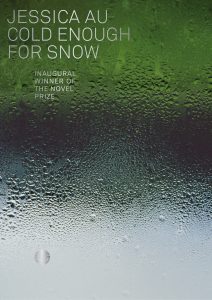Jessica Au: a note on Cold Enough for Snow
Often, for a work to have a sense of ‘aliveness’, writing it has to be just as much a process of discovery for the author as for the reader. While working on Cold Enough for Snow, I suppose I was thinking about several things, and trying to conceive of a form – the simplest possible – where many, or all, could be held to be true at once. One of these was the relationship between life and art: what it means to want to see the world as an artist without necessarily being one, and the strange, ouroboros-like connection between the two (art trying to depict life, and us trying to understand life through art). I liked too the triangular, ekphrastic quality of this – how we can sometimes only see things clearly through a third thing or object. It is through travelling in Japan that the narrator is able to think about her and her mother’s relationship to family and memory, and of the individual, or two individuals, in time and history. I wanted here to convey something about the nature of migration across generations, and how it is an ongoing process of fragmentation, forgetting, rediscovery and nostalgia, which is both a lack and a boon. Finally, it is, I suppose, also a novel about the relationship between language and the inner world – how difficult it is to speak truly, to know and be known by another. At the same time, there is so much power and friction in the unsaid, especially between a mother and daughter. I thought of the whole book as a kind of dialogue between them, and was keeping in my mind the kind of literature, and perhaps also languages such as Chinese or Japanese, where little might be explicitly said, and much inferred.
— Jessica Au


